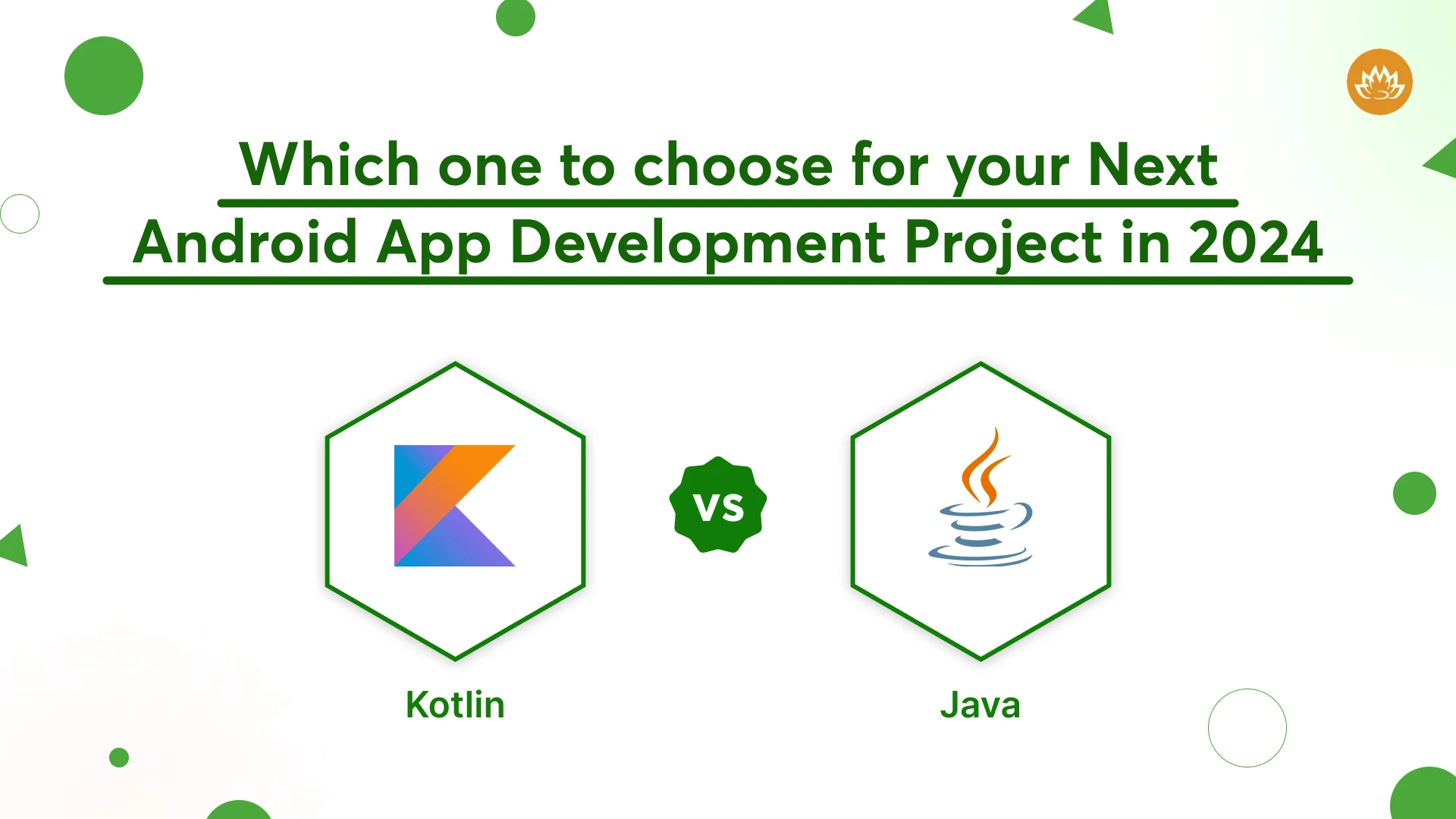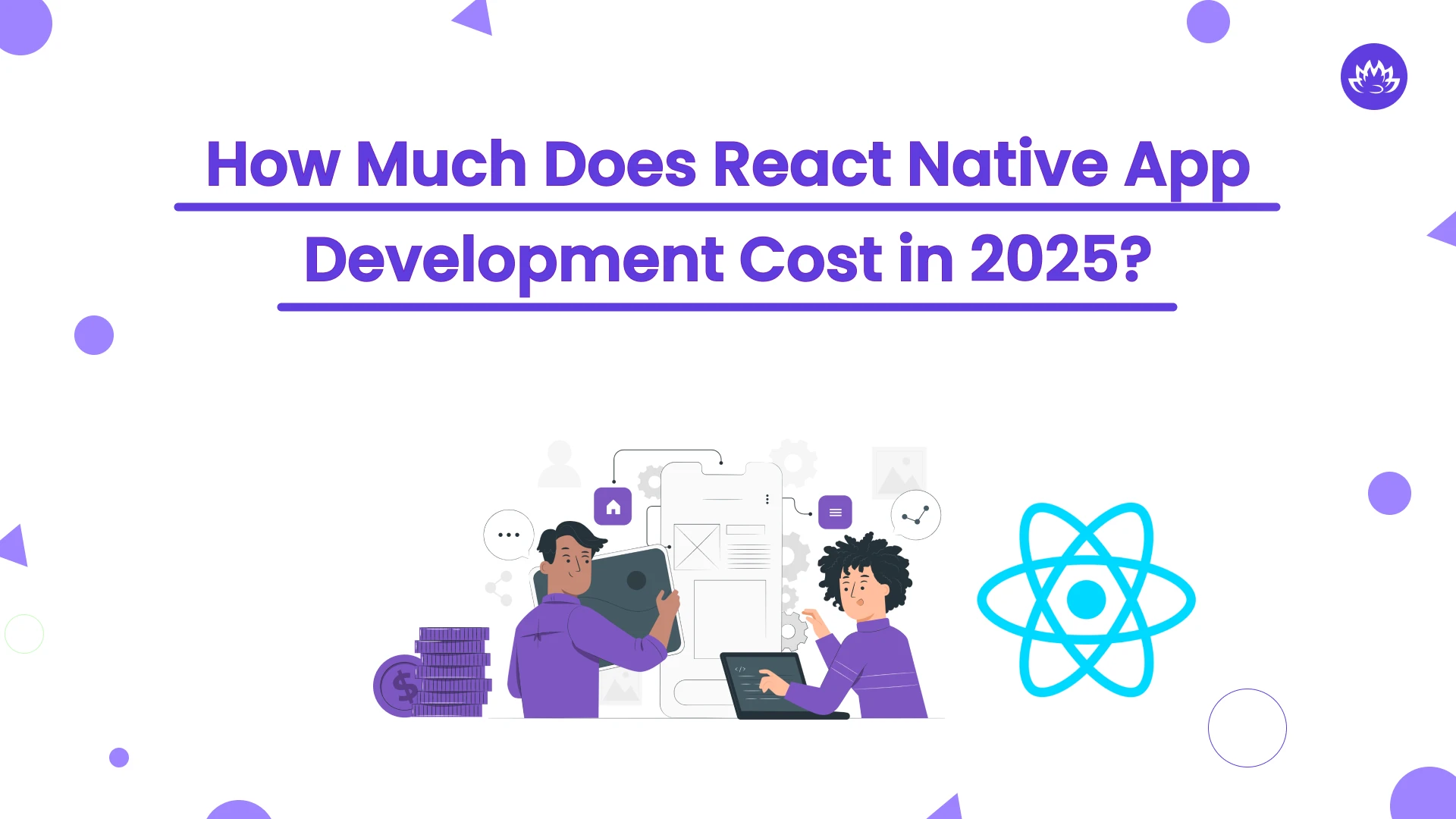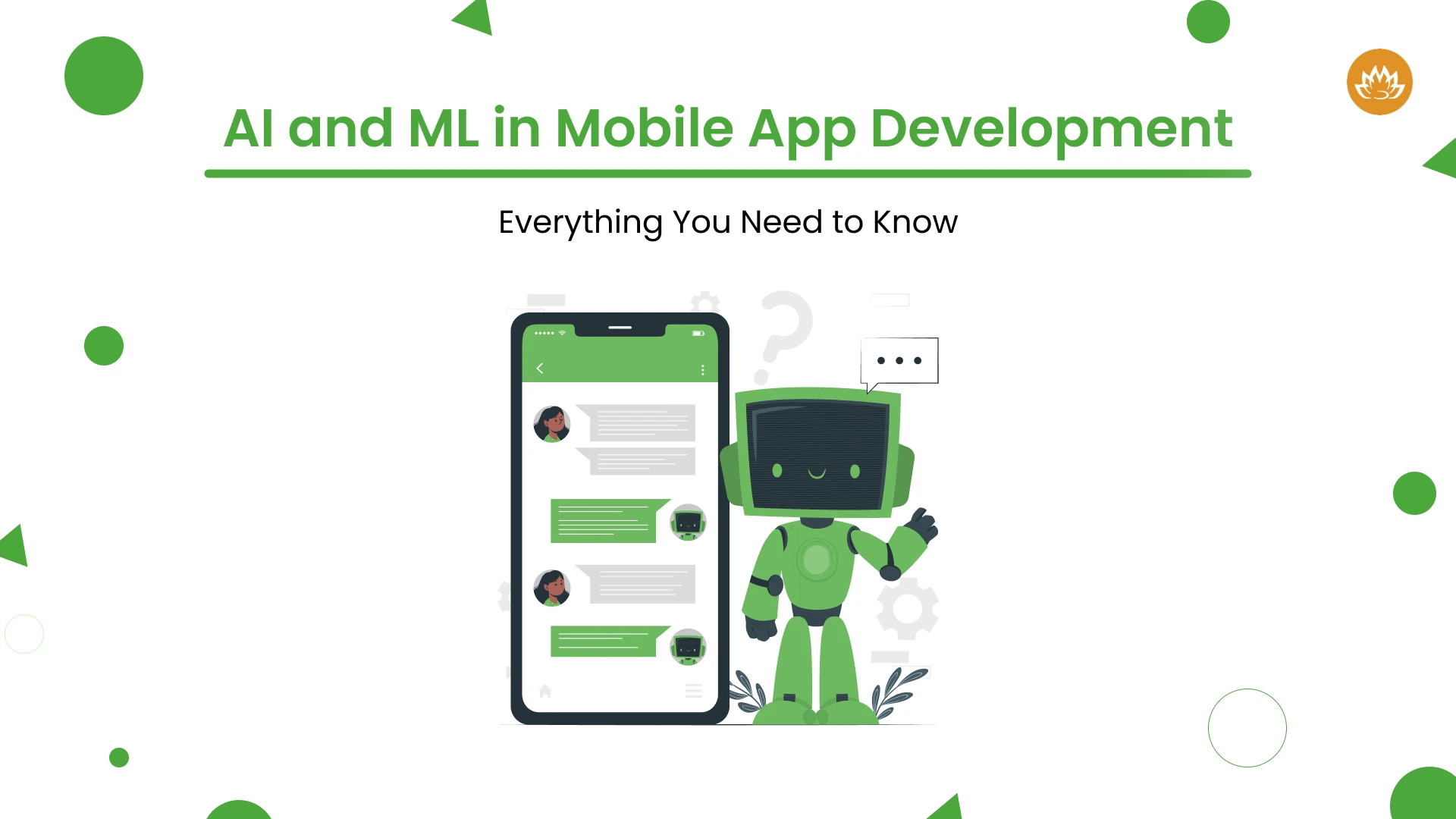Are you wondering what to use Java or Kotlin for your next Android application development project? There are two ways to understand and decide – one is knowing them in a general-purpose context and the second is since your project is Android development, you must do an in-depth analysis of various nuances. Kotlin is Google’s most preferred language and hence mostly suited for all new mobile apps. However, both Kotlin and Java have several strengths if considered as general-purpose languages. So developers must understand the differences between both languages.
Kotlin is the best for new projects while Java is used to obtain robust stability in any project. Over the years we have gained expertise in knowing what it takes to develop an enterprise application. We know the choice between Java and Kotlin depends on project requirements, developer skills, and preferences. In this blog, we want you to know some of the key differences between both programming languages before you make a choice.
What is Java?
James Gosling developed Java and launched it in 1995. Java is an open-source, object-oriented, general-purpose programming language. It is a multiplatform language, suitable for all types of devices, servers, or operating systems. Java is compiled to bytecode and hence it can run on JVM (Java Virtual Machine). Java is typed statically and does performance type checking during compilation.
What is Kotlin?
Kotlin is newer than Java and was introduced in 2016. Like Java, it is also an open-source language that runs on JVM and can compile code to bytecode. Capable of working on different platforms, Kotlin is quite compatible to accommodate Java libraries and frameworks for a given project. To be precise, Kotlin is an improved version of Java and is much simpler, cleaner, and faster to compile. It is the perfect mix of functional and object-oriented programming.
Kotlin vs Java: Major Differences
Extension Functions
Developers can extend the functionality of classes without inheriting from a class in Kotlin. This is not possible in Java. In that case, developers need to prefix the name of the class to perform the extension function in Kotlin. The name of the function is created by using ‘ ‘ notation.
On the other hand, in Java, developers need to create a new class to extend the functionality of the existing class and to inherit the functions from the parent class. To be precise, Java does not have an extension function.
Null Safety
Java’s NullPointerExceptions is a bit cumbersome. NullPointerExpressions helps users attribute a null value to any variable. For example, if users want to use an object reference, it will always be a null value. Hence, developers need to handle various exceptions when NullPointerExpressions come into play.
On the contrary, Kotlin cannot attribute null values to variables or objects by default. In case if we do the same, codes do not perform during compilation. Hence, there are no NullPointerExpressions in Kotlin. Developers explicitly need to mark the variable in question as nullable. For that, they add a question mark:
Val number: Int? = null
Code
Kotlin needs less coding than Java. Kotlin is a precise language aiming to reduce errors and make developers’ job simple and seamless. With Kotlin, you can write large projects that need fewer programming lines. In the case of Java, for the same kind of project, you need to write the same functions. You need to keep it short and straight to the point without compromising on syntax readability.
Coroutine Support
Components in Android belong to the same application and run in the same process and thread. Usually, network I/O and CPU-intensive activities are lengthier and take time due to continuous threads that get blocked until the completion of an ongoing operation.
Java plays a significant role here to avoid such complications on the main thread. It creates multiple background threads to control and handle lengthy operations. While doing this, there are chances of errors. Also, Kotlin helps create multiple threads. It gives a better and more straightforward solution named coroutines.
Coroutines are mainly stackless and help developers write code, suspend execution, and resume again. All synchronous code is converted into asynchronous code. Therefore, with coroutines developers can avoid having too many threads and they can clearer and more concise codes as compared to Java’s strategy.
Smart Casts
In Java, developers monitor variables’ types to cast in consonance to the operation. Whereas in Kotlin, there are smart cast features handling casting checks. This is because Kotlin has an intelligent compiler that automatically manages redundant casts via the “is checks” keyword.
Data Classes
Java developers need to build fields for data storage, the constructor, getter, and setter functions for fields and various other types of functions like hashCode(), equals(), and toString().
Classes store data and have zero functionality. On the contrary, Kotlin has a straightforward way to build classes that hold data in a quite simplified way including the “data” keyword in the class definition. The compiler will auto-generate the constructor as well as it will take care of getter and setter functionalities.
Checked Exceptions
Kotlin does not have checked exceptions. Hence, there is no requirement to catch or declare exceptions. This point is debatable and based on various viewpoints.
Whereas, Java developers have checked expressions support. They can catch and declare expressions, but it can also become stressful sometimes. The result is phenomenal by ensuring robust codes and error-handling mechanisms. Hence, checked exceptions are good as well as bad sometimes. It all depends on the developer’s priority.
Functional Programming
The purpose of Functional programming is to handle computations that are mathematically based. High-order functions and lambda expressions are the basic functional programming concepts.
High-order functions are important and Kotlin harnesses these variety of functions and uses it in various operations. Lambda expressions with Kotlin also work well because they represent a function that is not yet declared and quickly passes an expression.
On the other hand, Java has a limited concept of object-oriented programming, and lambda expressions can only pass objects and can be executed on demand. With lambda expressions, Java can support high-order functions only through a particular method.
Primitive Types
Java variables are primitive and not object-oriented. There are predefined Java data types. Java has eight primitive data types byte, short, float, boolean, char, etc. These variables do not represent through object. All the primitive types are not classes. To convert them into classes, developers need to indicate it at the onset.
Kotlin is very simple to execute and considers objects the moment developers initiate a variable of primitive type.
Public Fields
Java has public fields that are very convenient if object callers need to modify as per the representation of that same object. Developers can change the object representation without adjusting the callers. Hence, fields become public and the public API remains unchanged.
Whereas, Java supports implicit conversions and developers can keep themselves off from performing explicit conversions.
Conclusion
Java has numerous types of applications. However, Kotlin steals the thunder as the most loved language for building Android apps. Google has poured in a lot of hard work to design Kotlin with its newest technologies that awe the developers. So if you are deciding upon which one to choose, consider Kotlin as it is more modern and has concise syntax with null safety features. You can hire Kotlin developers from Whitelotus Corporation for your Android development project. Java has a wider ecosystem and has matured tools and libraries. So it depends on your project needs.
Whitelotus Corporation is a leading Java development services providing company, that delivers robust mobile and web applications. You can hire developers from Whitelotus Corporation to build small and large-scale enterprise applications. We know how to harness the tools and functionalities of various technologies to create the best solutions that will meet your expectations.
Author
-

Kirtan is CEO of Whitelotus Corporation, an emerging tech agency aimed to empower startups and enterprises around the world by its digital software solutions such as mobile and web applications. As a CEO, he plays key role in business development by bringing innovation through latest technical service offering, creating various strategic partnerships, and help build company's global reputation by delivering excellence to customers.
View all posts













